Debunking what you thought you knew about EVs
Even though electric vehicles (EVs) are more popular than ever, there are still several misconceptions that surround them. As the future is firmly electric, it’s about time we put some of these concerns to bed once and for all. From range issues to the cost of electric cars, read on as we debunk six of the most common electric car myths out there.
Myth #1 - You can’t drive very far in an electric car
We may as well get this old chestnut out of the way first. Range anxiety is a thing of the past. We repeat, a thing of the past.
Around 15 years ago, electric cars were typically only capable of covering less than 50 miles on a single charge. These days, some new releases like the Tesla Model Y Long Range boast real-world range of almost 300 miles. Ask yourself, honestly, when was the last time you had to drive 300 miles in one go?
A more typical ‘real world’ range for most new EVs is in the region north of 150 miles. There's tons of choice, at multiple price points with real world ranges of 200+ and 250+ miles.
That’s more than enough for most of us and around 99% of all car trips in the UK are under 150 miles.
If you do need to travel a long distance in a day then you can quickly replenish the vehicle's battery at one of the many thousands of rapid and ultra-rapid chargers available right across the UK. More on EV charging guidance.
Real world range capabilities of popular EVs:
Nissan Leaf 40kWh
150 miles
Peugeot e-2008 50kWh
155 miles
Renault Zoe 50kWh
195 miles
Volkswagen ID.3 58kWh
215 miles
Kia e-Niro 64kWh
235 miles
Tesla Model 3 Long Range 75kWh
295 miles
Tesla Model S Long Range 95kWh
360 miles
Find out more about the electric cars...
Nissan Leaf
- £2,209.66 Initial rental (ex. VAT)
- £2,651.59 Initial rental (inc. VAT)
- 48 Month term
- 5000 Annual mileage
- Subject to status and conditions + arrangement fee
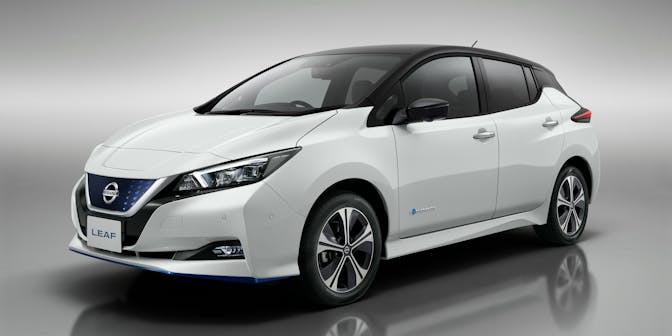
Tesla Model 3
- £4,815.24 Initial rental (ex. VAT)
- £5,778.29 Initial rental (inc. VAT)
- 48 Month term
- 5000 Annual mileage
- Subject to status and conditions + arrangement fee
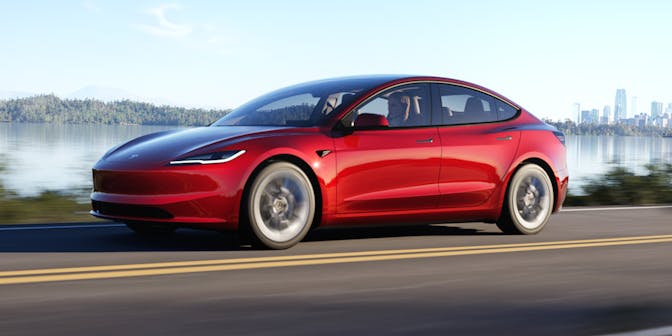
Peugeot e-2008
- £2,508.83 Initial rental (ex. VAT)
- £3,010.60 Initial rental (inc. VAT)
- 48 Month term
- 5000 Annual mileage
- Subject to status and conditions + arrangement fee
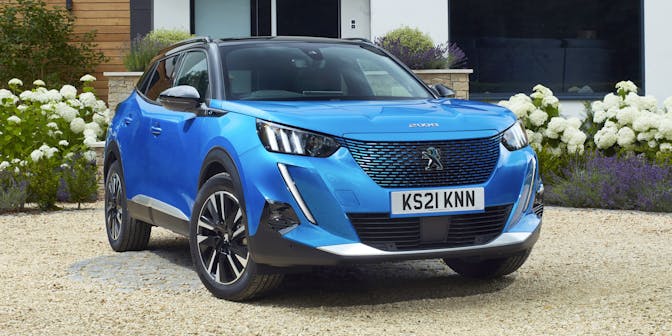
Volkswagen ID.3
- £2,060.44 Initial rental (ex. VAT)
- £2,472.53 Initial rental (inc. VAT)
- 24 Month term
- 5000 Annual mileage
- Subject to status and conditions + arrangement fee
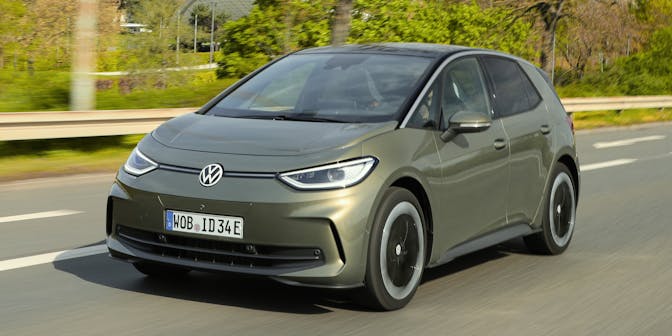
Myth #2 - EVs are just city cars
Most of us are aware of the environmental benefits of EVs, which have led the UK government to ban the sale of new petrol and diesel cars from 2035, and incentivise electric vehicle use through 100% discounts on London’s Ultra Low Emission Zone (ULEZ) and Congestion Charge. This London-centric (though understandable) policymaking combined with concerns those new to electric cars have about range might make you wonder: Are electric cars are only suitable for city driving?
This couldn’t be further from the truth. EVs are also a great option if you don’t live in London, you will still make savings on fuel, and vehicle maintenance (company car tax if you’re a business driver) and reduce the impact your journeys have on your local air quality too.
There is also excellent public charge point access outside of London, and more and faster rapid chargers are being added to the UK’s charging networks all the time. Between towns and cities, rapid charging facilities are easily accessible at motorway service stations, which is great for people who cover large daily distances for work. With more and faster rapid chargers being added to the UK’s charging networks all the time.
And due to house prices, you're actually more likely to have off-street parking outside of Greater London, which means an EV driver can take advantage of having a professionally installed home charger, which means the EV can be charged overnight when it's greenest and cheapest to recharge.
Even if you don’t need to drive hundreds of miles per day, EVs are perfectly suited for all kinds of driving. Their comfort levels and efficiency-minded engineering makes them a pleasure to drive, and amongst other things, perfect for short local journeys and commuting, as well as longer trips for weekends away or travelling between meetings.
Myth #3 - Electric vehicles are too expensive
Another ‘becoming more outdated by the minute’ myth that modern EVs are proving to be untrue. Electric cars were pricey in the early days, partly because they were packed with new technology that was expensive to produce. Since then, prices have come down as this tech has become commonplace and far higher demand has driven down prices. This is to do with both improved and streamlined manufacturing processes, as well as greater competition between carmakers.
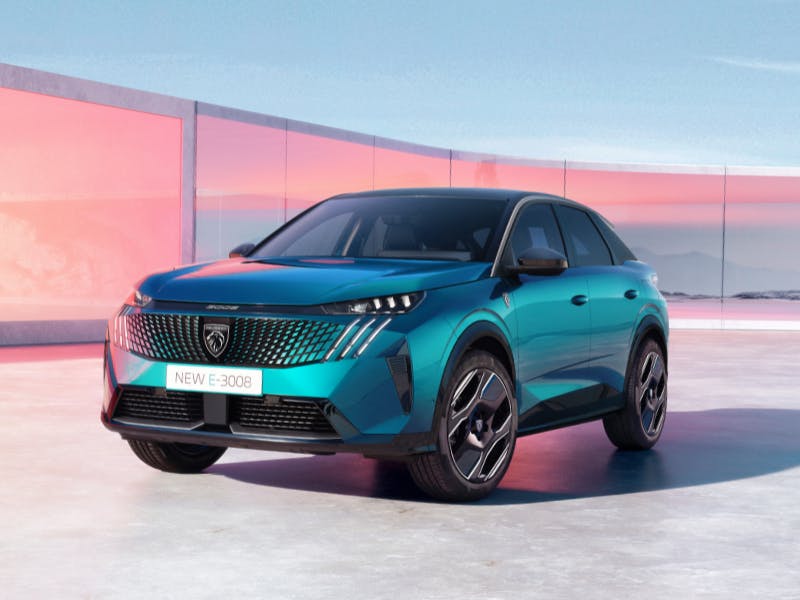
Better still, EV running costs are much lower than their traditional counterparts. Electric car cost per mile figures are far cheaper than petrol or diesel vehicles due to EV efficiency and electricity costing much less than fuel. Maintenance costs are also lower, while the rising value of second hand EVs means leasing them is cheaper than ever (this is down to the reduced depreciation, you can read a guide about that here ‘Do electric cars depreciate?’). Electric car battery replacement cost can be a worry for some people, but most new EVs come with lengthy warranties covering their power packs. This means you don’t have to worry about replacing batteries for a long time, if ever, should you decide to lease an electric car.
Myth #4 - EVs are a luxury item
There are indeed plenty of options out there if you’re looking for a luxury electric car. However, it’s far from the case that all EVs are premium cars. Perhaps the impact of the pioneering brand Tesla is a little to blame, but nowadays there are all different types of electric cars available to suit all manner of budgets.
From inexpensive Smart cars to popular hatchbacks like the MG4 you can also choose from a range of fully-electric vans. Of course, if you do want to have a luxury EV or two as part of your fleet, that option is always there too.
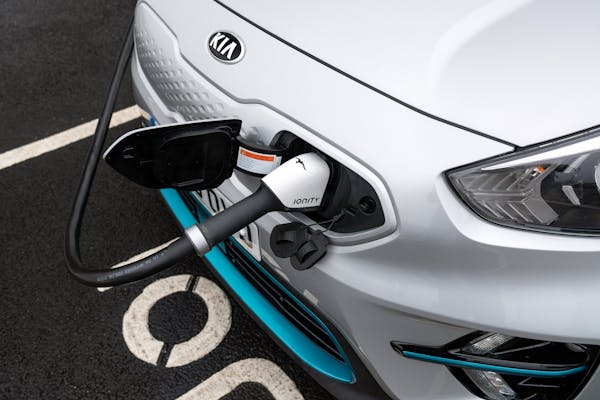
Myth #5 - Electric cars take all day to charge
This can be true if you charge an EV with an enormous battery (hello premium SUV options from Tesla, Mercedes-Benz and Jaguar!) using a regular 3 pin plug charging cable. This cable will charge your EV at speeds of up to 3kW, this is called slow charging for a reason. We don't recommend that a 3-pin plug cable is your primary source of charging an EV, it's a good back up option if you're going to a location where doesn't have a better option.
Most professionally installed home charger units are 7kW, allowing you to charge a car like the Volkswagen ID.3, which has a 58kWh battery, in around eight hours.
This is ideal for most people who leave their cars plugged in overnight, taking advantage of what can be the cheapest off-peak energy costs. Rapid charging is only available at public stations, with 50kW and 150kW speeds available on networks like Instavolt, bp pulse and Ecotricity, whereas the latest Tesla superchargers operate at 250kW.
These can add around 75 miles of range to a Model 3 Long Range in just five minutes. For non-Tesla drivers public chargers capable of charging a car at 350kW are becoming more common across the UK, these are known as ultra-rapid cars such as the Hyundai IONIQ 5 and Kia EV6 can be very quickly charged.
Myth #6 - You need a driveway to own an electric car
Although we do recommend EVs as being more suitable for people who can park on their drive at night (so you can have a home charge point), there are plenty of instances where this is not necessary. One of these is when businesses have charge points installed on their premises, allowing employees to charge either their personal or fleet vehicles.
There’s even a government grant you can take up at present, which contributes up to £350 per charge point installed through the Workplace Charging Scheme for businesses. And if you do have a driveway or your own off street parking, there is a government home charger grant also offering £350 towards buying and installing a charger - but this is now only available to residents in flats or people renting, with a dedicated parking spot.
More EV guides
Understanding Vehicle Excise Duty (VED) or "Road Tax" for EVs
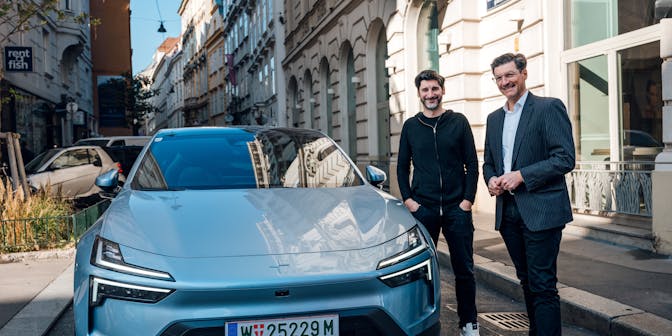
How to save money on a new car with Salary Sacrifice
How is salary sacrifice calculated?
